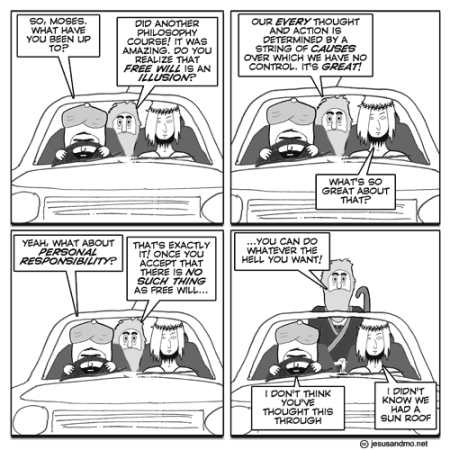Group 1 in Bioethics: you guys still need a name. How about The Stiffs? After your report topic, not your fluid presentation. Who knew the ethics of mortal disposition could be so engaging? Home Run! But I can't believe none of you had ever heard of The Splendid Splinter. Now there's a prime candidate for thawing and reassembly in the year 2525, if the national pastime is still alive.

Our culture does not do a great job of facing death squarely, hence our general uneasiness with this subject. But medical professionals have to become comfortable with it, or at least familiar. I'm glad we spent some class time doing that. (And sorry I couldn't resist some obvious puns before we finished, like "kicking a dead horse" etc.)
Some might think the subject of Faith was a dead horse, but Group 1 in A&P kicked it around with novelty and panache.
They had much of the faith spectrum covered, from Jamey's W.K. Clifford view ("it's wrong to believe without evidence") to Jon's pragmatic pluralism to the implied faith in belief (whether secular or woo-ey) that many of them seemed to endorse. (Still not sure what to make of that "embarrassing" old Princeton engineering study of mind's mysterious anomalies, Josh, but as Dean would say: it gives me pause.)
One perspective remained unaddressed, unless I missed it: John Dewey's "common faith"-a faith in as-yet-unachieved human and humane ideals for which we may work, rather than in allegedly actual (but evidentially unsupported) supernatural realities we may merely ponder and worship.
“Men have gone on to build up vast intellectual schemes, philosophies, and theologies, to prove that ideals are not real as ideals but as antecedently existing actualities. They have failed to see that in converting moral realities into matters of intellectual assent they have evinced lack of moral faith. Faith that something should be in existence as far as lies in our power is changed into the intellectual belief that it is already in existence. When physical existence does not bear out the assertion, the physical is subtly changed into the metaphysical. In this way, moral faith has been inextricably tied up with intellectual beliefs about the supernatural.” John Dewey, A Common FaithThat's one of the many versions of humanist faith, which rejects arbitrary faith, authority, and revelation, but affirms humanity and its aspirations for life. The gap between reality and the achievement of our dreams is a standing invitation to move onward into the fog.
I for one remain confident and hopeful (though uncertain) that we as a species will get to the promised land at the top of the stairs, though we cannot see them all from here. Yet.












